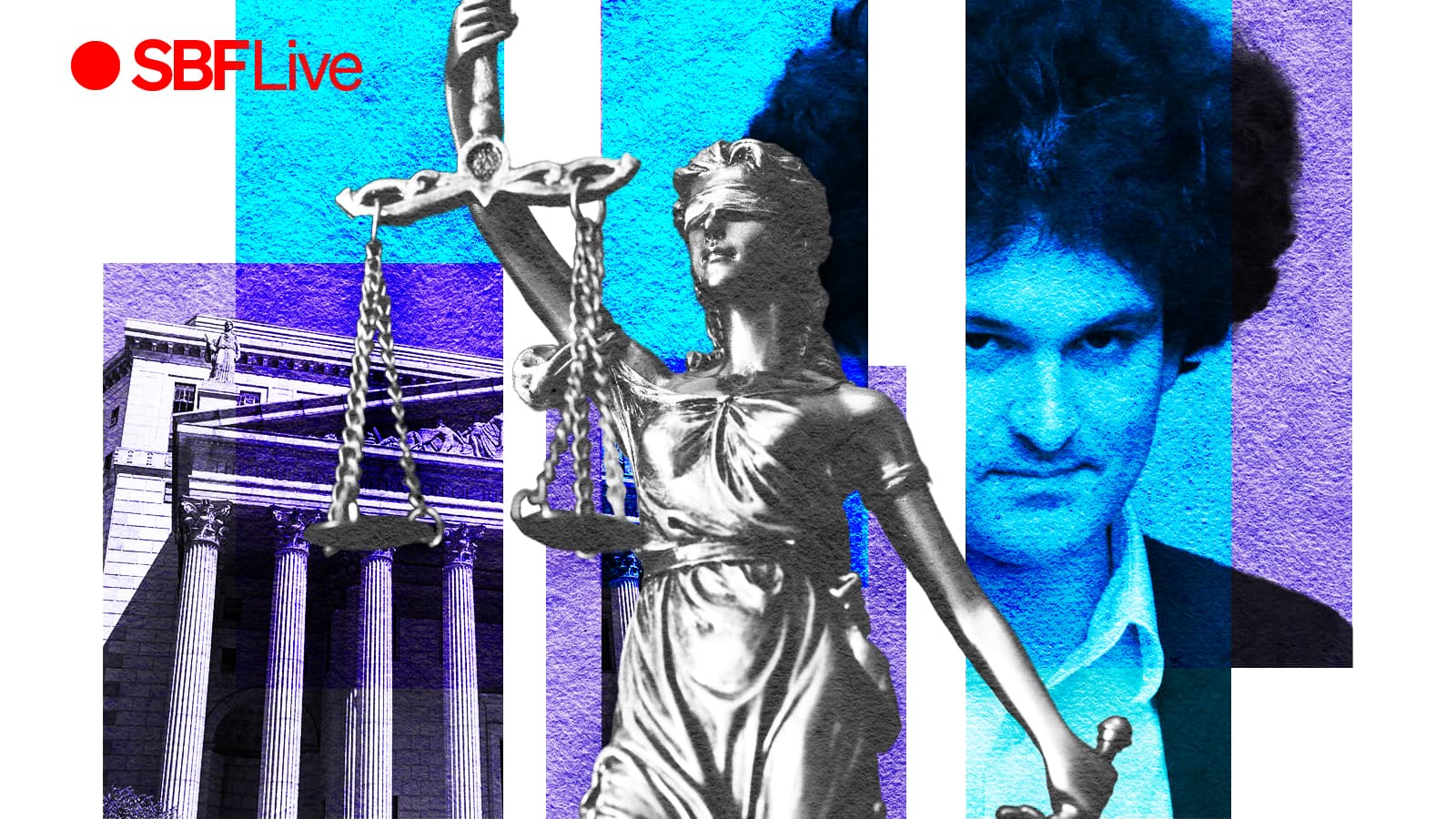Government hits jury with a victim and SBF’s old friend as first witnesses
Adam Yedidia, Bankman-Fried’s former college roommate and employee, agreed to help the government prove its case in exchange for immunity

Artwork by Crystal Le
The government began making its case against Sam Bankman-Fried in a Manhattan criminal trial on Wednesday. It chose to first introduce the jury to one of the exchange’s alleged victims, followed by insights into FTX and Alameda through the testimony of a former employee.
Marc-Antoine Julliard, a French-born UK resident who claims to have lost around 100,000 British pounds on FTX, took the stand as the prosecution’s first witness Wednesday afternoon.
While Bankman-Fried likely never knew of Julliard, the prosecution’s second choice was a familiar face to him. Adam Yedidia, Bankman-Fried’s former college roommate and employee, agreed to help the government prove its case in exchange for immunity, he revealed in court Wednesday.
Sympathetic victim?
Julliard, a commodities trader, confirmed when cross-examined by the defense that he was interested in cryptocurrencies, which he described as “not state or government-regulated,” because he was allowed to trade them without disclosing his holdings to employers.
He told the court he followed Bankman-Fried and FTX on Twitter, as it was formerly known. He felt the exchange was trustworthy for the “significant” amount of money he wanted to invest.
“He would come across to me […] as the leader of the [crypto] industry,” Julliard said when asked to describe his impression of Bankman-Fried.
Bankman-Fried also seemed like he wanted to “do good” for the industry and the world, Julliard added. He said that this contributed to his trust in FTX as a trading platform.
Julliard said he became aware of potential withdrawal issues on FTX in November 2022 through the news and social media posts. However, he did not attempt to withdraw his funds until November 8, 2022, in part thanks to tweets posted by Bankman-Fried.
The tweets, which the government issued into evidence, were Nov. 6 and Nov. 7 statements from the FTX founder assuring customers that the exchange had “already processed billions” in withdrawals and was operating well.
Julliard has never been able to recover the funds he had in his account, he told the court.
“If I trade […] I have a strategy,” he said, noting that he understood the risks of crypto, but having someone trade for him or with his money was “not what I signed up for.”
Old friend to new enemy?
Next was Adam Yedidia; longtime friend of Bankman-Fried, one of the infamous Bahamian penthouse’s nine residents, and a former FTX employee.
Yedidia was a trader at Alameda, then a software developer at FTX. During his testimony, he recalled the moment his tenure at the doomed crypto exchange was over: allegedly when a fellow employee told him what was happening with FTX customer funds.
Yedidia told the jury he received a call in November 2022 — amid the throes of the FTX collapse — informing him that Alameda was paying off its creditors with FTX customers’ money. He said that he resigned over that revelation and has not seen or spoke to Bankman-Fried since.
Yedidia said he testified under an immunity agreement, which means that he can’t be prosecuted for anything he says on the stand — provided that his testimony is true.
Yedidia further explained that he was not willing to testify if there wasn’t an immunity agreement. As an FTX software developer, he said he was worried that he could have “unwittingly” written a line of code that could have been used in the commission of a crime.
His testimony was still underway until 4:30 pm ET, when the court adjourned. The state will resume questioning Yedidia on Thursday morning.
Get the news in your inbox. Explore Blockworks newsletters:
- The Breakdown: Decoding crypto and the markets. Daily.
- 0xResearch: Alpha in your inbox. Think like an analyst.






